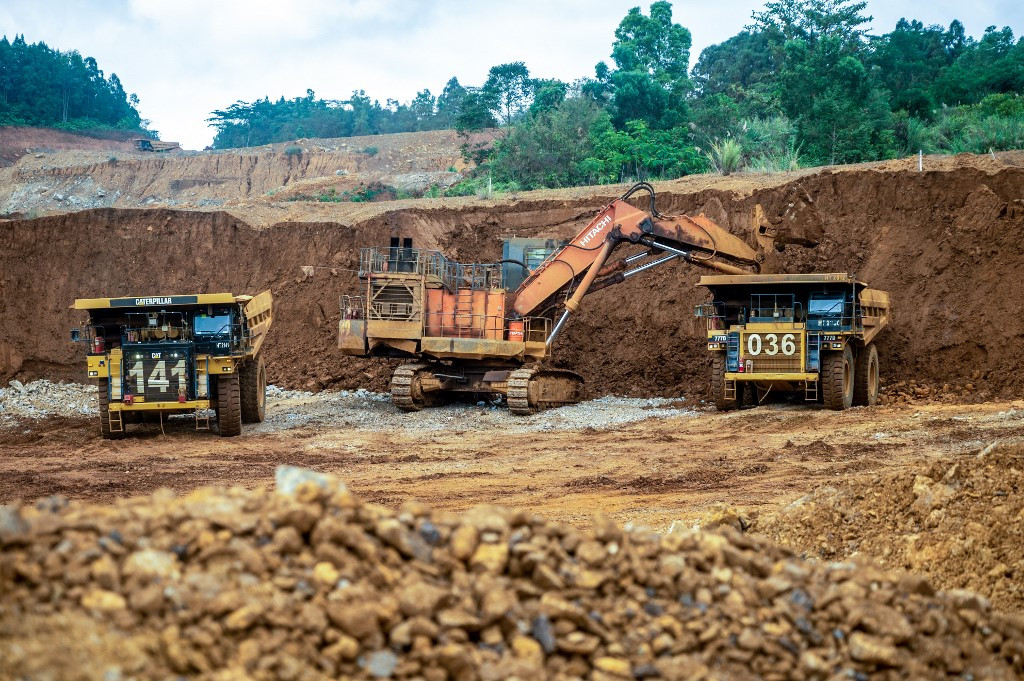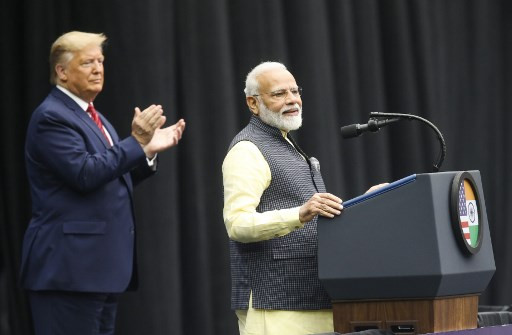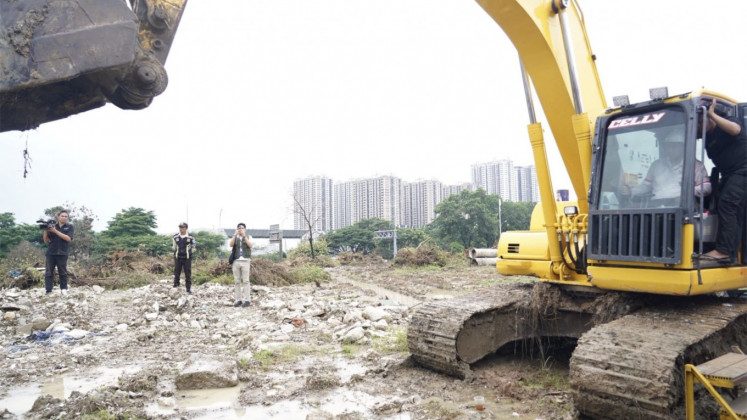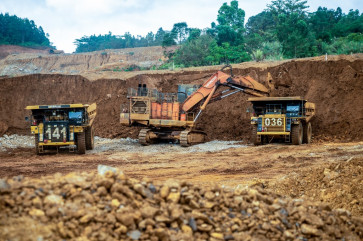Popular Reads
Top Results
Can't find what you're looking for?
View all search resultsPopular Reads
Top Results
Can't find what you're looking for?
View all search resultsRI nickel industry struggles to ditch coal amid global green demands
Change text size
Gift Premium Articles
to Anyone
T
ransitioning from coal to other energy sources remains a major hurdle for Indonesia’s nickel industry, which is under growing global pressure to clean up its operations, says nickel association.
“It's not easy to make the [switch to] new energy consumption, [to a] new energy power plant,” Meidy Lengkey, secretary general of the Indonesian Nickel Miners Association (APNI), said during a panel discussion at the Inaugural Global Business Summit on Belt and Road Infrastructure Investment, which was held in Jakarta on Sunday.
“We're trying to find new materials, including wood chips, nuclear or gas. But I'm not sure we can make them [as reliable as] a coal power plant. The point is, the government will support us for the energy transition.”
As the world’s top nickel producer, supplying over 60 percent of global demand, Indonesia is under increasing pressure to clean up its energy-intensive downstream industries.
Domestic nickel-processing capacity has expanded rapidly since 2020.
Today, 49 pyrometallurgy smelters and five hydrometallurgy plants are in operation across the country, with plans to reach 147 facilities by the end of 2025, according to Meidy.
These processing facilities were clustered in industrial parks across Sulawesi, Maluku and Papua, she added, regions rich in ore but often lacking clean energy infrastructure.


















